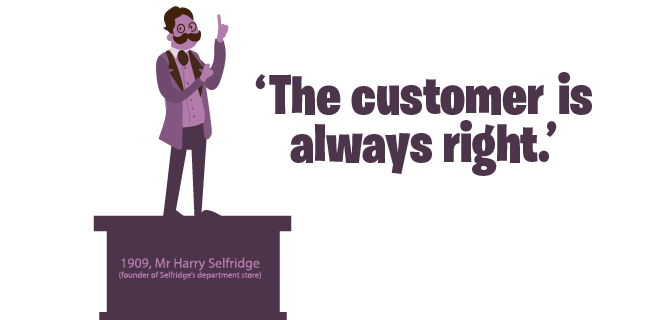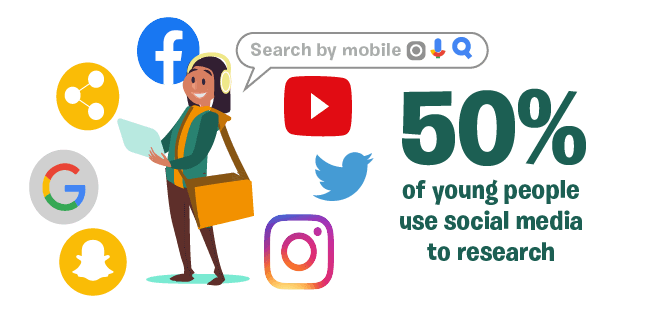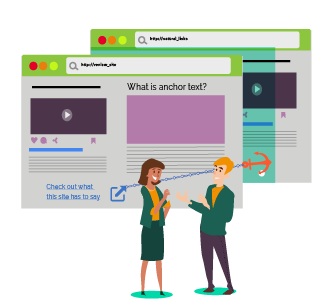You’ve probably heard lots about the importance of on-page SEO and why you need to optimise your content and technical SEO in order to rank highly.
But not many people stress the importance of off-page SEO, even though it can have a significant impact on your website’s rankings.
Understanding Off-page SEO
Off-page SEO – or ‘off-site’ SEO – refers to the actions that take place away from your website. These are actions that seek to improve your site’s trustworthiness, credibility and worthiness.

Most users form an opinion on your website before they’ve even landed on it. Whether it be through reviews, external links, social media advertisements or general brand awareness.
Good reputation matters
It’s important you manage this external reputation effectively to increase your website’s traffic, conversions and importantly, SEO rankings.
It’s critical that your on-page SEO remains a major priority for your business. You should continue to do everything you can to optimise it.
However, off-page SEO holds a lot of power over your brand’s authority and awareness. That’s why you should never under-value it when forming your overall SEO strategy.
5 Factors That Can Impact Your Off-Page SEO
Off-page SEO is all about managing your reputation and giving credibility to your brand as an authority. Therefore any citation that you come across online can have an impact on your SEO.
Of course, you won’t be able to control every single thing that is said about you or your business online. But there are a few things you can do away from your website that can have a positive impact on your rankings.
Let’s take a look at a few of them below.
1. Quality link Building

Building backlinks is one of the most important things you should be doing for your off-page SEO. It’s relatively easy to do, and many things you can implement yourself.
Search engines look at a website’s backlinks in order to determine its quality and then rank it accordingly. And it’s the value of these backlinks which is the most important factor when it comes to ranking.
As a general rule of thumb, a site with fewer high-value backlinks will usually rank higher than an otherwise equal site that has more low-quality backlinks.
You should always remember, it’s about quality over quantity
If your backlinks appear unnatural or spammy, a search engine’s algorithms will detect this and penalise you accordingly. You want to ensure you’re building a natural backlink profile.
2. Providing Good Customer Service

In 1909, Mr Harry Selfridge (founder of Selfridge’s department store), coined the popular phrase; ‘the customer is always right.’ His aim; to guarantee prospective customers an excellent shopping experience with outstanding customer service.
The phrase has since become gospel to lots of different businesses, who place it at the very core of their customer service.
A business’ entire success is based on the customer and their experience. So, it should come as no surprise that you should always adopt a customer-centric approach in everything you do.
The value of customer service should never be understated
From the very second a searcher lands on your website, to the moment they receive their follow-up email to check on their purchase, you should be making every point of contact the best it can be.
Think of how many times you’ve received poor customer service from a company.
Were you deterred from shopping with them again? Did it lead you to change service provider completely?
If you answered yes to the above, then don’t be surprised if your customers react in a similar way if their experience with you is a negative one.
Poor customer service leads to poor rankings
Poor customer service can easily damage your reputation and, as a result, harm your SEO.
Reviews play a huge part in your website’s off-page SEO. These could appear on review websites such as Trustpilot. Or alternatively, social media sites like Facebook, or even your Google My Business listing.
Either way, every review that is linked to your brand’s website will have an impact.

Search engines won’t direct searchers to websites that offer a perceptively poor service. So, if you ignore the importance of customer service, you could jeopardise your ability to rank.
Your central goal for customer service is to leave the impression that each individual that interacted with the business received the very best assistance possible.
Beyond customer service
Depending on the size of your business, customer service may extend well beyond email and social media. If you work hard to ensure top-quality customer service, your off-page SEO will benefit hugely.
Always encourage your customers to leave feedback. Rankings aside, your prospective customers will convert easier if there are honest reviews which outline your previous user’s experience.
3. Being Responsive on Social Media
Social media is a priceless part of your off-page SEO. Delving into the world of social media is much easier than most people think.
Having a presence is important, but using it is even more important; you should be proactive on your social media accounts and work to help each and every person who posts a comment, query or vents their frustration.
Sales behaviour in young people
According to recent research, over 50% of young people (16-34 year-olds) who are on social media use it to research products which they’re looking to purchase.

Got a company update? Be sure to share it on your social media. Want free advertising space? Use your social media to promote your products and/or services.
Your social media platforms will be the main source of knowledge for many consumers who are looking to shop online So, you should try to make them a priority.
The human element
It’s also important to remember that you need to come across as human, too. It sounds rather silly, but it’s a mistake that lots of businesses make.
It’s very easy to fall into the trap of sounding formal or too formulaic on social media. Especially when you’re trying to convert your audience into paying customers.
Remember that social media can be a more informal environment for your brand to come to life. Consumers always want genuine interactions which don’t feel forced or robotic.
By having someone who is dedicated to monitoring and managing your social media, you stand a better chance of success.
They’ll get to know your audience too. They will gain valuable insight. Such as, what they respond to well or why they’re engaging with your brand.
A social media manager can even help you understand what your customers want to see from you in the future.
Plus, they’ll develop a natural voice for your brand which carries well across your social media.
4. Guest blogging

Guest blogging is one of the most effective off-page SEO strategies you can implement as a brand. It helps with both your link building and your reputation.
When you write a guest post on another website or blog, the website will usually allow you to include a link or call to action. You can send visitors back to your website, adding to your backlink profile.
In addition, you’ll have the extra benefit of featuring on another website. This will build your authority as a name or brand in the industry, as you share insights on your niche with a wider audience.
New to guest blogging?
To start guest blogging, you’ll first need to find, research, and reach out to websites and offer your services.
Remember to look for sites with high SEO value – non-spammy and authoritative domains that are related to your business’ products or services.
You’ll want to pitch a new and enticing blog idea to them – one which you think their audience will be interested in reading. It’s important that you’re open to tweaks to your idea, but remember to keep your post genuine and relevant to you.
Blog for a reason
You don’t want to promote your brand just for the sake of getting your name somewhere – you want to be authentic and create value in everything you do.
The company may want to have a guest blog on your site as a return. So, it’ll be up to you to decide what you’re willing to reciprocate.
Reputation aside, it’s good to build these types of working relationships – you never know what useful insights and knowledge you could share in the future!
5. Influencer Marketing

In a recent survey, it was discovered that 63% of consumers apparently trust influencer messages more than brand messages. That’s almost 2 out of every 3 individuals relying on influencers rather than your brand.
It goes back to the idea of appearing more ‘human-like’ on your social media – influencers are humans. And as mentioned earlier, consumers tend to trust humans more than a faceless logo.
The rise of influencers
Influencer marketing has ballooned over the past few years. More and more brands are discovering the benefits of advertising themselves through a third-party individual. One with loyal and significant followings of people.
The aim of this type of marketing is to identify the influencers in your niche, forge a relationship and have them promote your brand.
As a result of their promotion, your click-through rate will be higher. Thus, influencers can have a positive impact on your off-page SEO and improve your rankings.
The power of influencer marketing
Influencers – typical of their name – usually yield a great deal of power over their followers. If they say a product is great, then it’s likely their fans are going to go ahead and purchase the product too.
It’s a basic part of human nature – we want to be like those we look up to.

Start small
To save you wasting time at the start, if you’re a small business, avoid going after macro-influencers. These are influencers with a large following (thousands of followers). They will probably charge extortionate prices to advertise for you.
Instead, you want to search for micro influencers (1000 followers or less). You may be able to incentivise them with free products or discount codes in return for advertisement.
These influencers are usually more authentic in the products they promote, and have probably purchased from you or your competition in the past.
The differences between micro or macro-influencers
Unlike macro-influencers who promote a variety of products, micro-influencers tend to have a specific niche.
They offer genuinely helpful advice and promotions to their followers who are interested in the same things as them.
This means you’ll be working with people that are genuinely invested in your brand and what you have to offer.
Influencer marketing can be a huge time commitment. Especially as you want to find influencers who are truly relevant and passionate about your brand.
Otherwise, you could end up with some half-hearted advertising that fails to show off your brand’s best side.
Do your research
If you are serious about influencer marketing, then make sure you do lots of research beforehand.
It won’t be right for every brand either, so keep that in mind.
Ensure you’re familiar with influencer marketing before spending time to pursue it.
Summary
Off-page SEO can have a huge impact on your rankings, and, inevitably, on the number of searchers landing on your website and engaging with your brand.
It’s all about building your brand’s trustworthiness and authority away from your website. This will give you credibility as a market leader within your niche.

Off-page SEO is equally as important as your on-page SEO
You want to make sure you’re creating a great reputation for your brand. Additionally, you’ll want to ensure you work hard to make your website as accessible and relevant as it possibly can be.
Every citation of your brand that appears away from your website will have an impact on your off-page SEO. There are several ranking factors that you can control which will influence your off-page SEO.
Ranking factors include:
- An effective link building strategy
- Quality customer service
- Social media activity
- Participating in guest blogs
- Influencer marketing
Hiring a marketing consultant to manage your off-page SEO
If you’ve got enough time, then managing your off-page SEO can be easily done yourself.
However, as with any other aspect of SEO, off-page SEO takes a lot of time if you want to do it correctly.
Off-page SEO is all about managing your reputation. You want to ensure it’s being done properly to prevent causing harm to your business.
Don't have the time?
If you don’t have the time to manage it yourself, then you may want to outsource your off-page SEO, or overall SEO strategy to a marketing consultant like myself.
To find out more about how outsourcing your SEO could benefit your business, get in touch today for a quick,obligation-free chat.
My team and I would be happy to share some of our previous work with you. Or discuss what type of strategy may be best for you.







